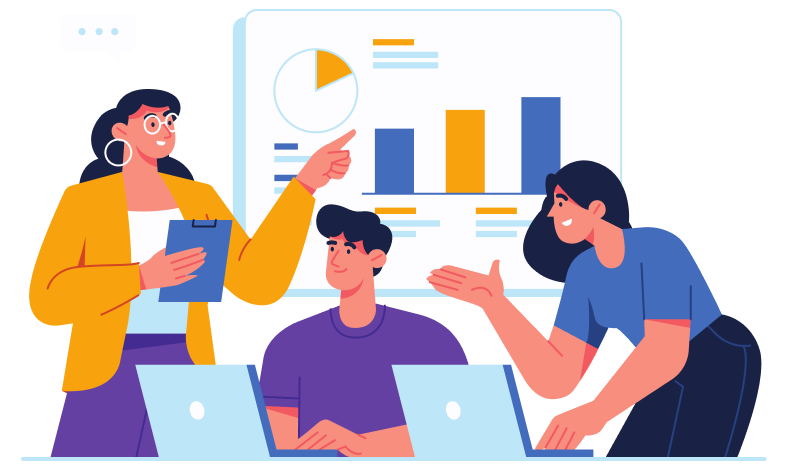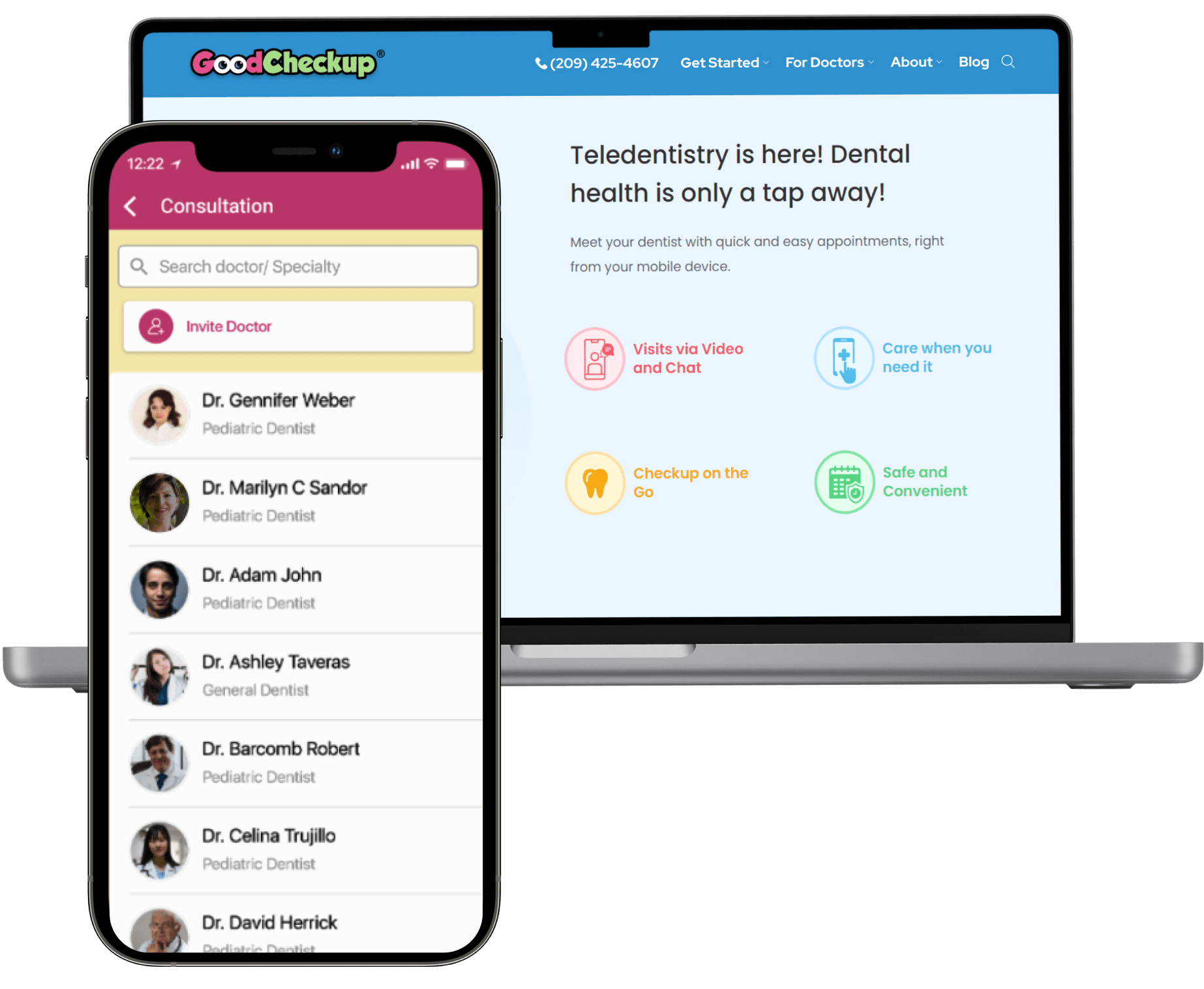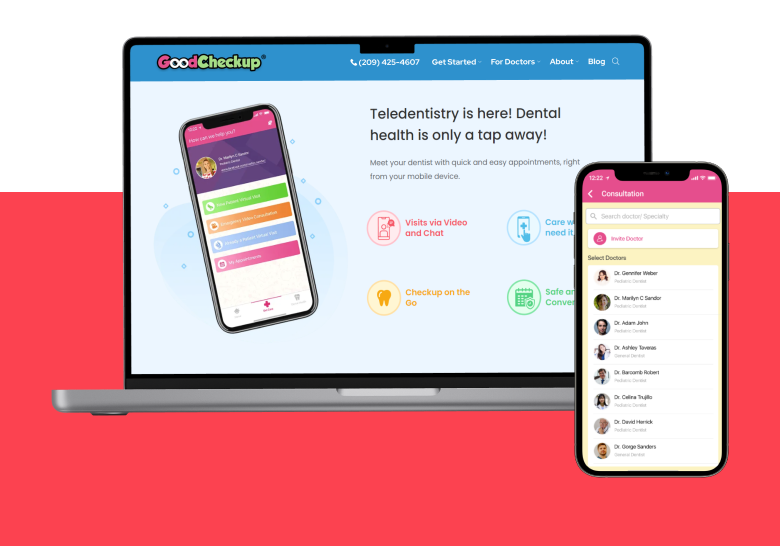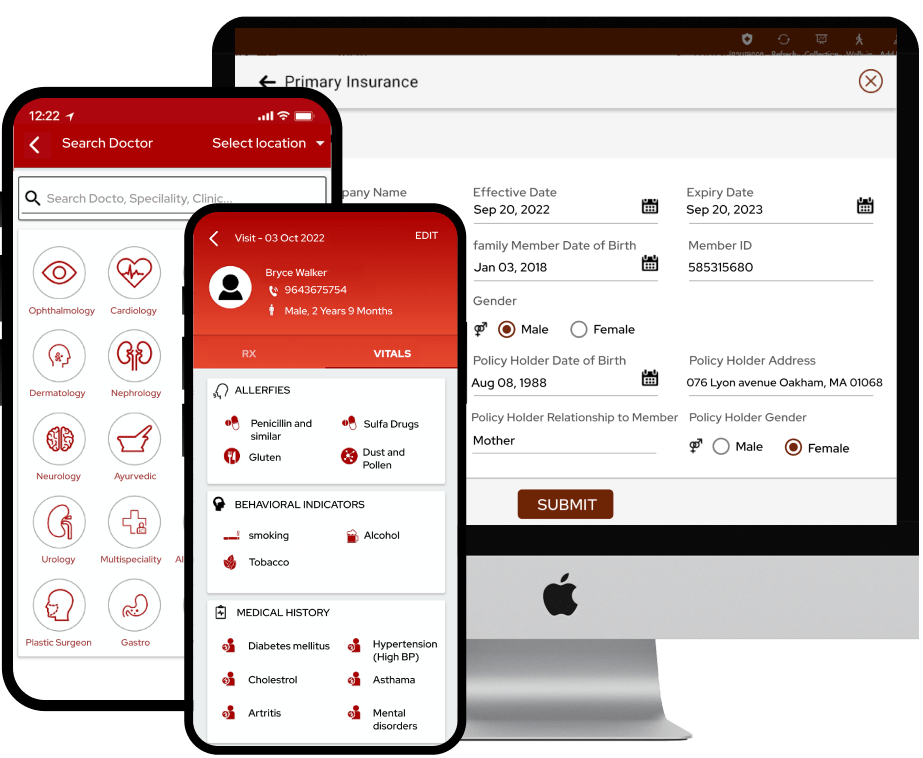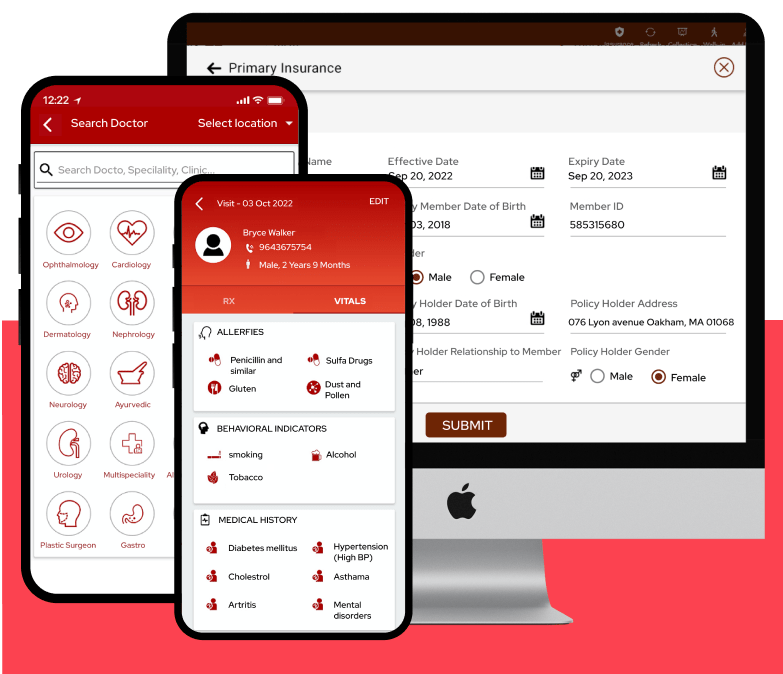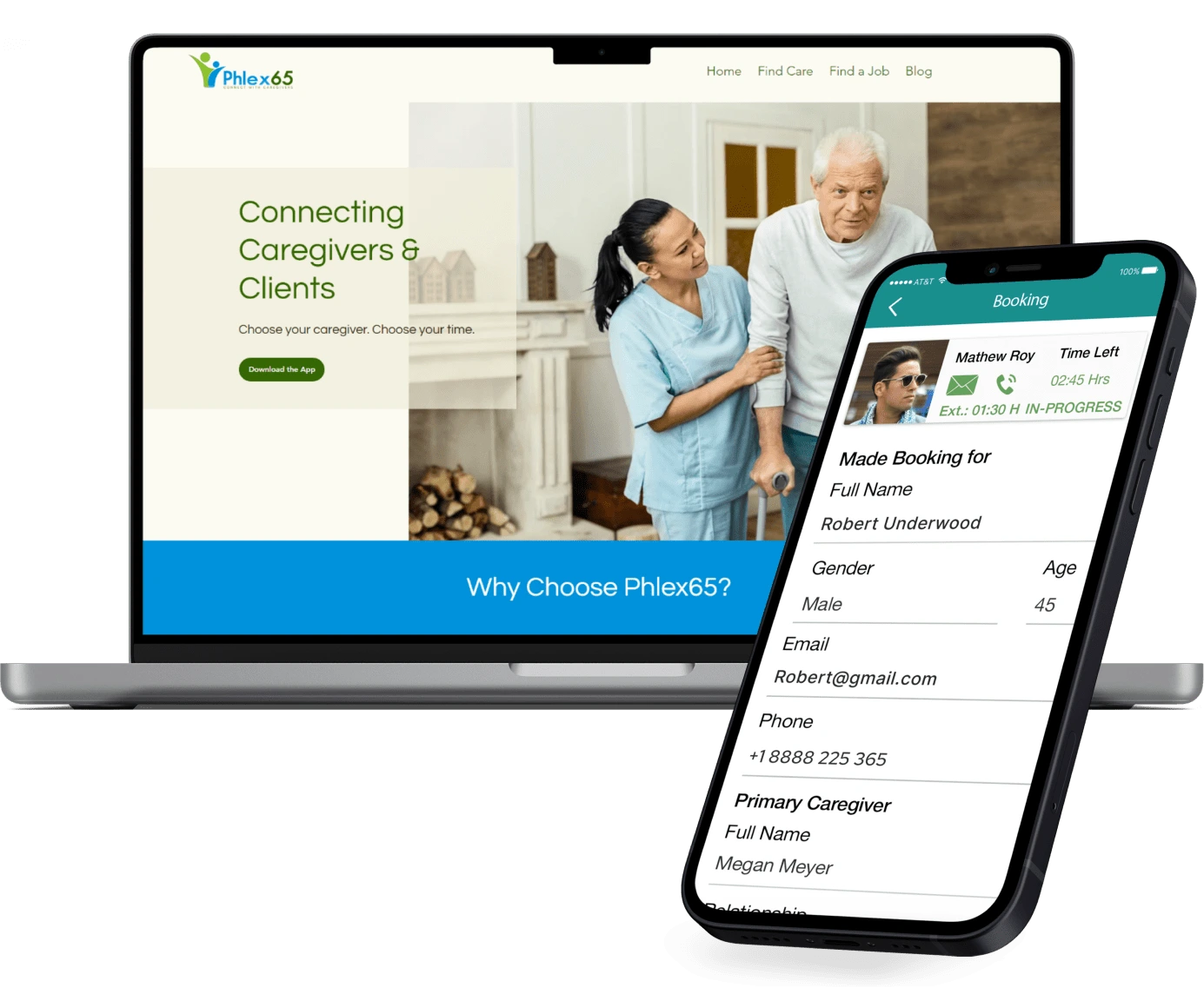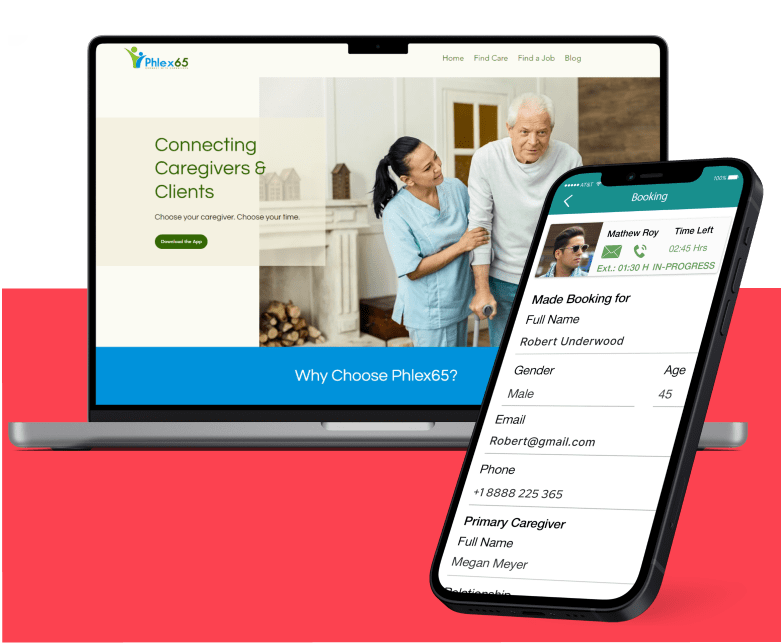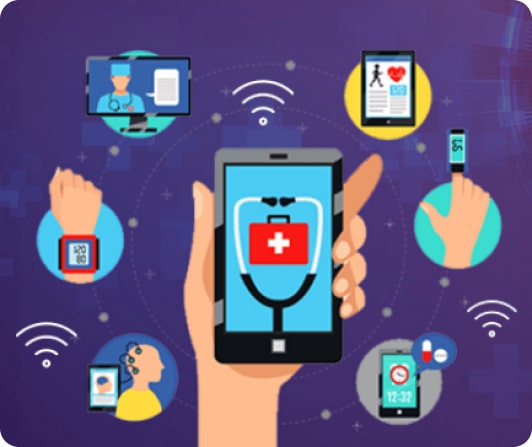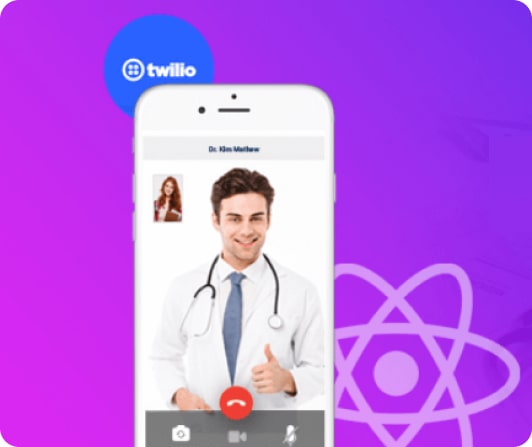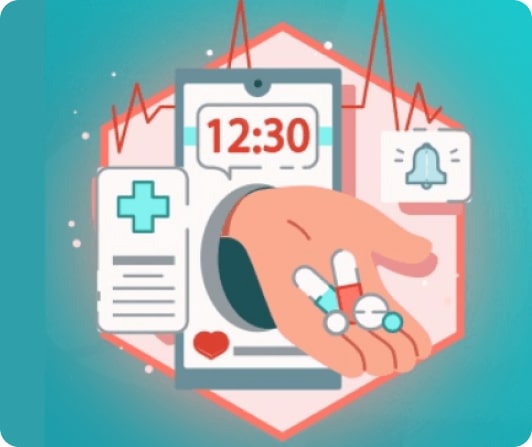Why do I require a healthcare app? What are its benefits?
Healthcare digitalization is the need of the hour. You, as a doctor, medical practitioner, or healthcare provider, can use an advanced healthcare app for connecting with patients, automating appointment scheduling, managing your healthcare facility, sending notifications or alerts to your patients or medical staff, reducing operational glitches, improving patient experiences/outcomes, etc. Ultimately a healthcare solution will transform your healthcare organization yielding better profits.
What features will be included in my healthcare application?
We will integrate various useful features into your healthcare solution as per your requirements. Some of the key features that are generally included are profile creation, appointment scheduling, in-app messaging, audio-video calling, media uploading, advanced search filters allowing patients to search for healthcare providers at different locations, file storage, geo-location integration, payment gateway integration, customer ratings, and reviews, etc.
Will it be beneficial to develop a custom Healthcare Application?
Yes, in most cases, custom healthcare app development solutions are recommended as every medical service provider has a different set of requirements. Custom development will help you to build task-oriented solutions for your healthcare organization as per the specific needs of each department. Also, custom healthcare apps are interoperable with the existing infrastructure and healthcare ecosystem of the medical facility.
Which Technologies are beneficial for Healthcare App Development?
The IoT technology allows you to develop apps that monitor patients remotely, measure health & wellness vitals, and optimize hospital workflows. Blockchain-powered healthcare IT solutions allow medical providers to add an extra layer of security by decentralizing management and making healthcare data traceable, transparent, and hack-proof. Machine Learning and Deep Learning solutions help in detecting diseases at earlier stages, make way for creating personalized treatment plans for patients, analyze errors in prescriptions, enable more accurate clinical decision-making, and help pharmacists in drug discovery and manufacturing.
Does my app need to adhere to rules and regulations?
If your healthcare app stores the personal sensitive information of the user, then it is mandatory to develop HIPAA-compliant apps, especially in countries like the USA as any incidences of leaks and breaches are penalized by the federal government and this penalty can cost you a fortune. Every country has its own set of compliant policies that you need to adhere to.
Other compliant policies: BYOD policy compliance to fulfill HIPAA guidelines; FDA clearance; EVV (Electronic Visit Verification) to capture caregiver information on mobile devices; HL7 Integration to facilitate information sharing amongst healthcare stakeholders and ICD-10 boosts the interoperability of EHRs.
What is the most challenging part while creating a comprehensive app?
Adhering to the standard regulations of HIPAA is one of the most challenging tasks after the app’s deployment. These rules sometimes affect the app’s design and the healthcare software development process as well.
What is the approximate cost of creating a telemedicine app?
Again, the cost of developing a telemedicine app depends on your requirement and the complexity of the features involved. The cost range of developing simple healthcare solutions with fewer features is approximately $15,000-$25,000. However, a complex app with high-end features may cost more than $ 25,000. Please connect with us to get a detailed healthcare app development estimate as per your specific requirements.
What are the trending monetization models of a healthcare mobile app?
The trending healthcare app monetization models are freemium (some features are paid), subscription-based (users pay a monthly/yearly subscription), and paid (users download the app with a one-time payment). Other popular revenue generation strategies are offering in-app purchases and including in-app advertisements.
What are EHR and EMR Systems used for?
EMR is a digitized version of a patient’s chart within a single practice. Information like the patient’s medical history, treatments, and diagnoses, and the details of hospital staff involved in the treatment. This information is not shared outside the practice. EHR is a digitized record of information regarding a patient’s health and contains a lot more information about the patient than an EMR. This information can be shared across different providers like labs, pharmacies, specialists, emergency rooms, etc. that are authorized.
These centralized data storage systems also secure & streamline medical data sharing with labs and other healthcare providers involved. Patients can access their vitals and medical history and reap the benefits of interactive patient portals.
What are the reasons why some healthcare solutions fail?
Some healthcare app solutions fail because of providing misleading information, UI/UX that is not appealing enough to fulfill the customer expectations, the absence of advanced features, not adhering to standard security practices & compliances, and the lack of rigorous testing during different stages of healthcare app development. Most of the aforesaid scenarios occur if you fail to choose a competent healthcare app development company and a solution that is compatible with the existing setup of your hospital or clinic.



 Skip to content
Skip to content




